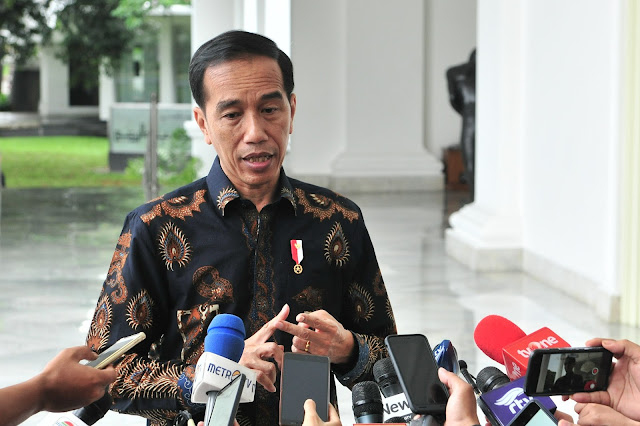Indonesia will Restore Citizenship for Political Exiles of Communist Party
pada tanggal
Sunday, March 19, 2023
JAKARTA, LELEMUKU.COM - Indonesia will restore citizenship to people whose passports were revoked in the 1960s on suspicion of links with the now-defunct communist party, said a presidential decree released Thursday.
The order is part of Indonesian President Joko “Jokowi” Widodo’s effort to make amends for past cases of gross human rights violations, for which he expressed regret in January.
The decree orders the foreign ministry to “verify data and provide priority services to obtain documents related to citizenship rights for victims or their heirs and people affected by serious human rights violations who are abroad.”
The exact number of the exiles from the 1960s is not known but estimates range from 1,500 to thousands, including their descendants. Many no longer have relatives in Indonesia, analysts said. The foreign ministry said it didn’t have a number either.
“We will immediately follow up with Indonesian representatives abroad,” Teuku Faizasyah, a spokesman for the ministry, told BenarNews.
A 1965-66 anti-communist purge followed an attempted coup blamed on the Indonesian Communist Party (PKI). Historians said hundreds of thousands were killed and supporters of then-President Sukarno were exiled following his ousting by Gen. Suharto.
Many of those exiled had been studying in eastern European countries and China on scholarships from Sukarno’s government.
Indonesia has been grappling with its legacy of human rights abuses under Suharto, who ruled the country with an iron fist from 1966 until he was ousted by mass protests in 1998.
Jokowi, in a televised address on Jan. 11, expressed his regret for past human rights violations and pledged to restore victims’ rights and pursue judicial solutions without neglecting non-judicial approaches such as reparations and reconciliation.
“I and my government are trying hard to prevent gross human rights violations from happening again in Indonesia in the future,” Jokowi said at the time.
The president listed 12 gross rights violations that occurred between the mid-1960s and 2003.
They included the anti-communist purge, killings during student protests in 1998, enforced disappearances of activists in 1997-1998, and violence against civilians in separatist hotspots Aceh and Papua.
‘Transparency is very important’
Tom Iljas, 84, an exile who lives Stockholm, said the government should first bring perpetrators of human rights violations to justice.
“It has been acknowledged that there are gross human rights violations, but there has been no mention of who committed them. They didn’t even apologize,” Iljas told BenarNews.
He urged the government to revoke a 1966 decree that bans communist, Marxist and Leninist ideologies, saying it discriminated against families of the victims.
Iljas said he had received a scholarship from Sukarno to study at the Peking Institute of Agricultural Mechanization in China in 1960 and graduated in 1965, but his passport was revoked by Suharto’s government.
“As long as there are discriminatory rules, the decree still exists and security is not guaranteed,” Iljas said, adding that about 20 exiles live in Sweden.
“If there is no security protection yet, why would those who are offered citizenship want to return to Indonesia?”
Human rights groups welcomed the president’s announcement as a step forward, but they, too, urged him to also pursue accountability for those responsible.
Usman Hamid, executive director of Amnesty International in Indonesia, said the government must release the full report of an inquiry last year into human rights abuses.
“Transparency is very important because this concerns government policy regarding human rights violations that have been neglected for decades,” Usman told BenarNews.
Team to investigate rights issues
Jokowi has appointed a team to implement his orders related to restoring rights.
A member of the team, Beka Ulung Hapsara, said he was optimistic the work could be completed by the end of the year, the presidential decree’s deadline.
“There is still enough time,” Beka told BenarNews, without elaborating.
Asvi Warman Adam, a historian at the National Research and Innovation Agency, said that there were possibly thousands of Indonesians living in exile in countries such as the Netherlands, China, Cuba, Albania, France, and Russia, while many others have died.
He noted that most had become citizens of those countries and had better protections there, so there is little incentive to return.
“It’s difficult because they already have good health insurance and here it’s not as good as in Europe,” he told BenarNews.
Asvi suggested that if the exiles want to maintain their foreign citizenship, they could obtain long-term visas for Indonesia to allow them to visit.
Chandra Halim, a history lecturer at Sanata Dharma University in Yogyakarta, called the government’s initiative “a positive step toward reconciliation.”
“This is not about making peace with the communists, but finding solutions for victims of past abuses stemming from political differences,” he said. (Arie Firdaus / Tria Dianti | BenarNews)


